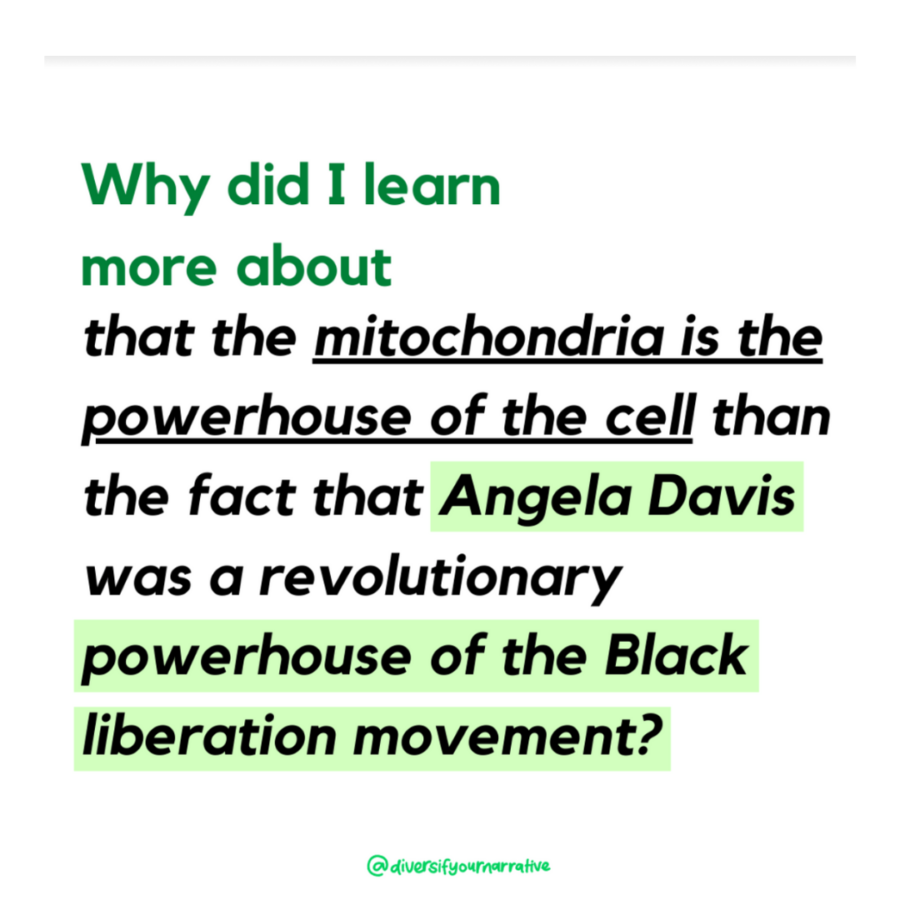Nick Kay staff writer
I urge you to stop for a minute to reflect on what you remember learning in middle and high school about the Black history of the United States.
I’m sure Martin Luther King Jr., the fight against segregation in the 1960s and figures such as Rosa Parks and Harriet Tubman were a few of the first things to jump out of your memory, but only learning about these very well known people and events is not enough. The lessons about African American history currently taught in schools is simply the tip of an iceberg that goes so much deeper than the basic requirements our educators are told to follow.
It isn’t until fifth grade that students begin to learn about our country’s history regarding racism. School curriculums have entire courses dedicated to the expansion of America in the 1800s and both of the World Wars, yet, not a single national required unit is focused on African American history. I do not expect school boards to change their yearlong history and English courses, but I do think future students deserve the right to an education that doesn’t disregard large parts of our country’s BIPOC history.
The way mainstream history curricula either misrepresent or even ignore multiple events regarding BIPOC in the United States history books is being challenged to change now more than ever. In high school, a large percentage of books students are assigned to read are written and/or are about white people. Our educators have the capability of teaching students that inclusiveness between all races, genders, religions and more in both our country’s history and present times is vital through adding more inclusive pieces of writing into their lessons.
Diversify Our Narrative is an organization with a mission to change the way our society has prioritized non-BIPOC literature in school. Their website provides dozens of resources to help others make a difference in their own communities: Webinars to inform teachers how to become more racially diverse within the classroom, templates that can help students and parents take the first step into contacting and gaining attention of their school board and a constantly updated outline of what the new and inclusive curriculums they are trying to create can look like. With over a total of sixty six thousand signatures, sixty eight current students and alumni from the Beverly Hills Unified School District have added their names to the list, one being senior Aasha Sendhil.
Sendhil explains that in order for students to uphold their educators wishes of becoming “more well-rounded” students, the current curriculum that “incredibly underrepresents so many communities and minorities” needs to become more inclusive of “any and all communities in the world.”
Each subject taught in school has a nationally set mandate for what must be part of their curriculum. Diversify Your Narrative’s goal is to change the nations current lack of racially inclusive books in schools. As their organization focuses on the changes that should be made in English courses, petitions like Anothny Beckfords, Pass the Black History Education Bill on change.org, focus on the lack of material taught in history classes.
The California Department of Education’s website details all the subjects history classes will cover each year. Their website reveals that only 3 out of the 8 history courses that are taught mention the key words “slavery, racism, African American and segregation.” That means any information students between the ages of ten to eighteen learn relating to Black history in the United States is condensed into less than 10 units per course (one course has over fifty units).
I cringe at the little information I remember from the few lessons dedicated to African American history I was taught. Moreso, I am disappointed in my school system for not educating my classmates and I about people and events that have been written out of our history simply because of the color of their skin.
It wasn’t until I realized I was going to have to take the responsibility to learn the indispensable history of BIPOC in this country that I understood the immense amount of important events and figures that are missing from our textbooks. Instead of letting the month of February be the time most teachers prioritize the teaching of African American history, it is time to start teaching history courses as if Black History Month was every month of the year.
African American history is American history. Unless we become more educated on our country’s vital but brutally excluded past, nothing will change. Our younger generations are the people who will shape the future. It is their education that will teach them what needs to be done to avoid their children from having to deal with the lack of historical knowledge and BIPOC literature in schools we are currently trying to change.
Categories:
School systems negate to include BIPOC history, literature
October 12, 2020
One of the many infographics regarding the lack of Black history taught in schools. Curtesy of DiversifyOurNarrative.com
0
Donate to Highlights
$125
$1000
Contributed
Our Goal
Your donation will support the student journalists of Beverly Hills High School. Your contribution will allow us to purchase equipment and cover our annual website hosting costs.
More to Discover





























